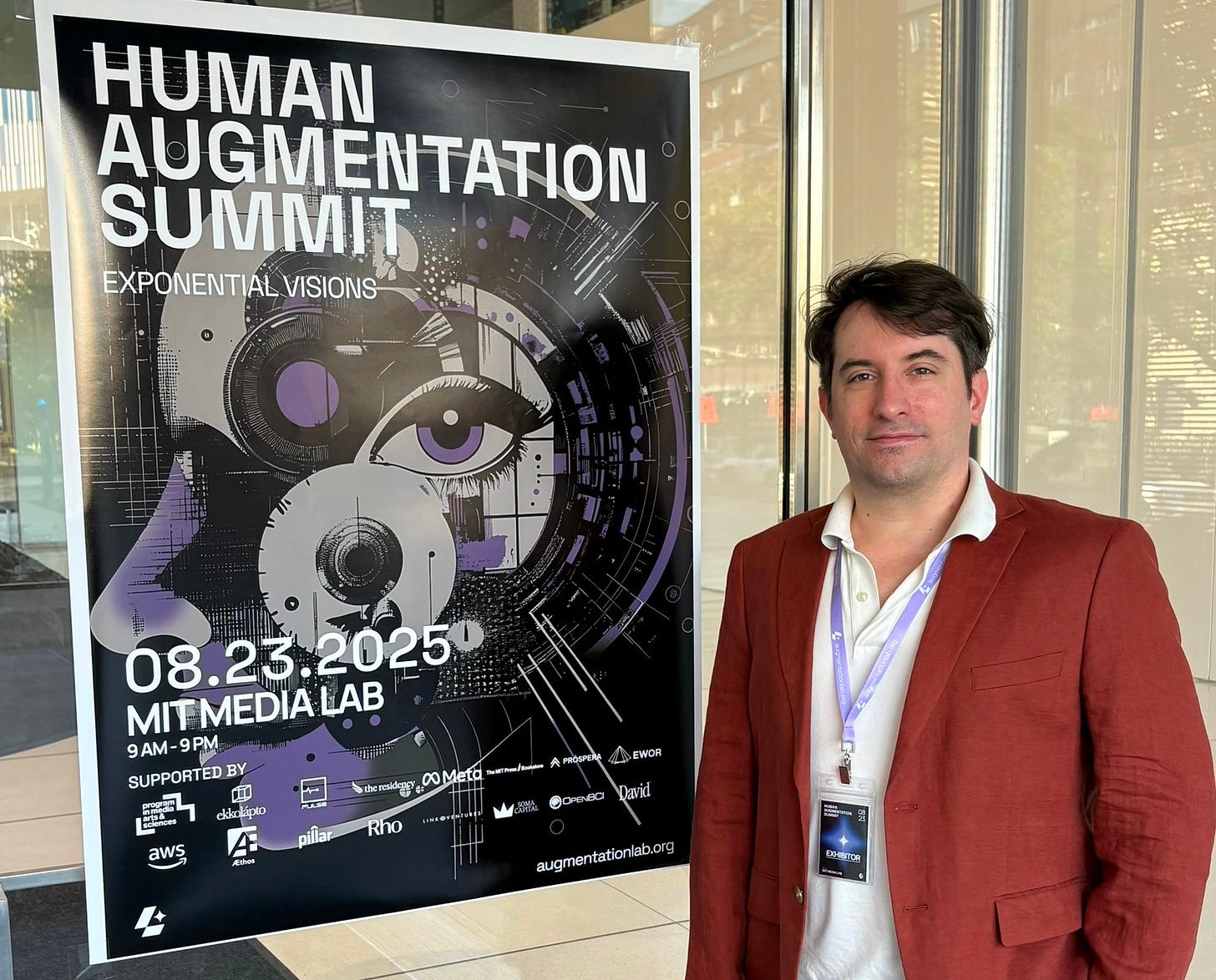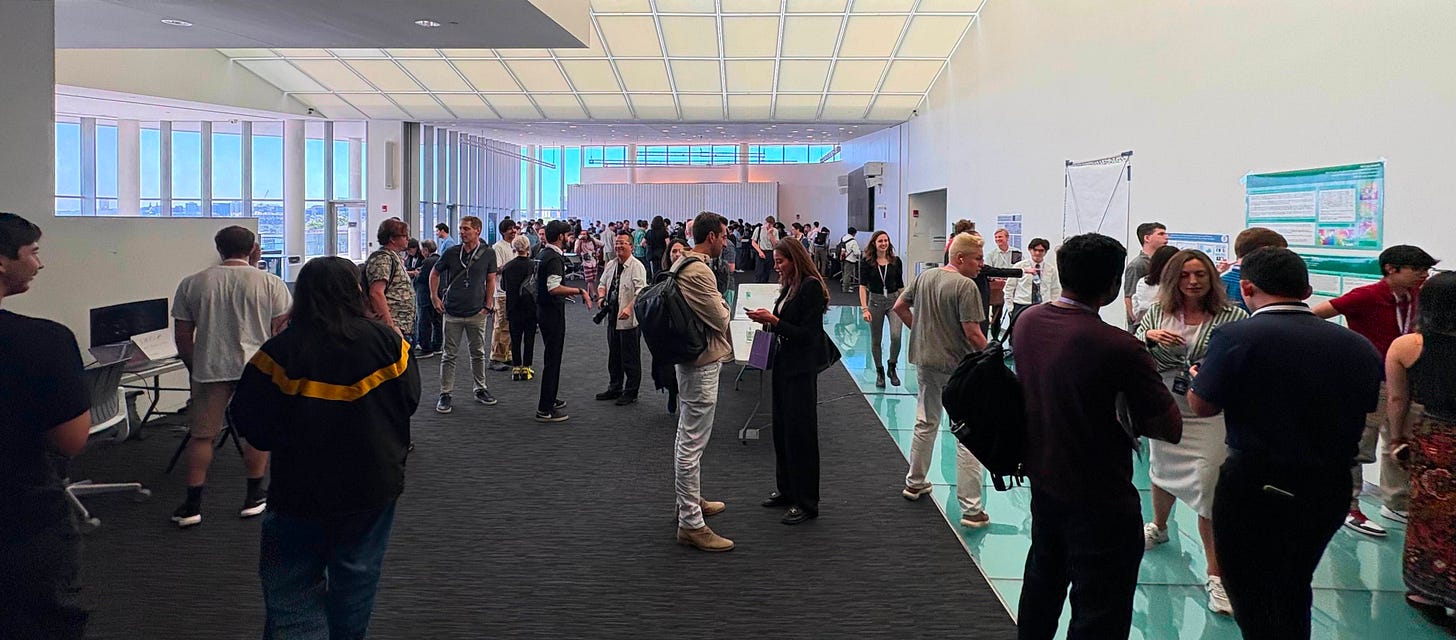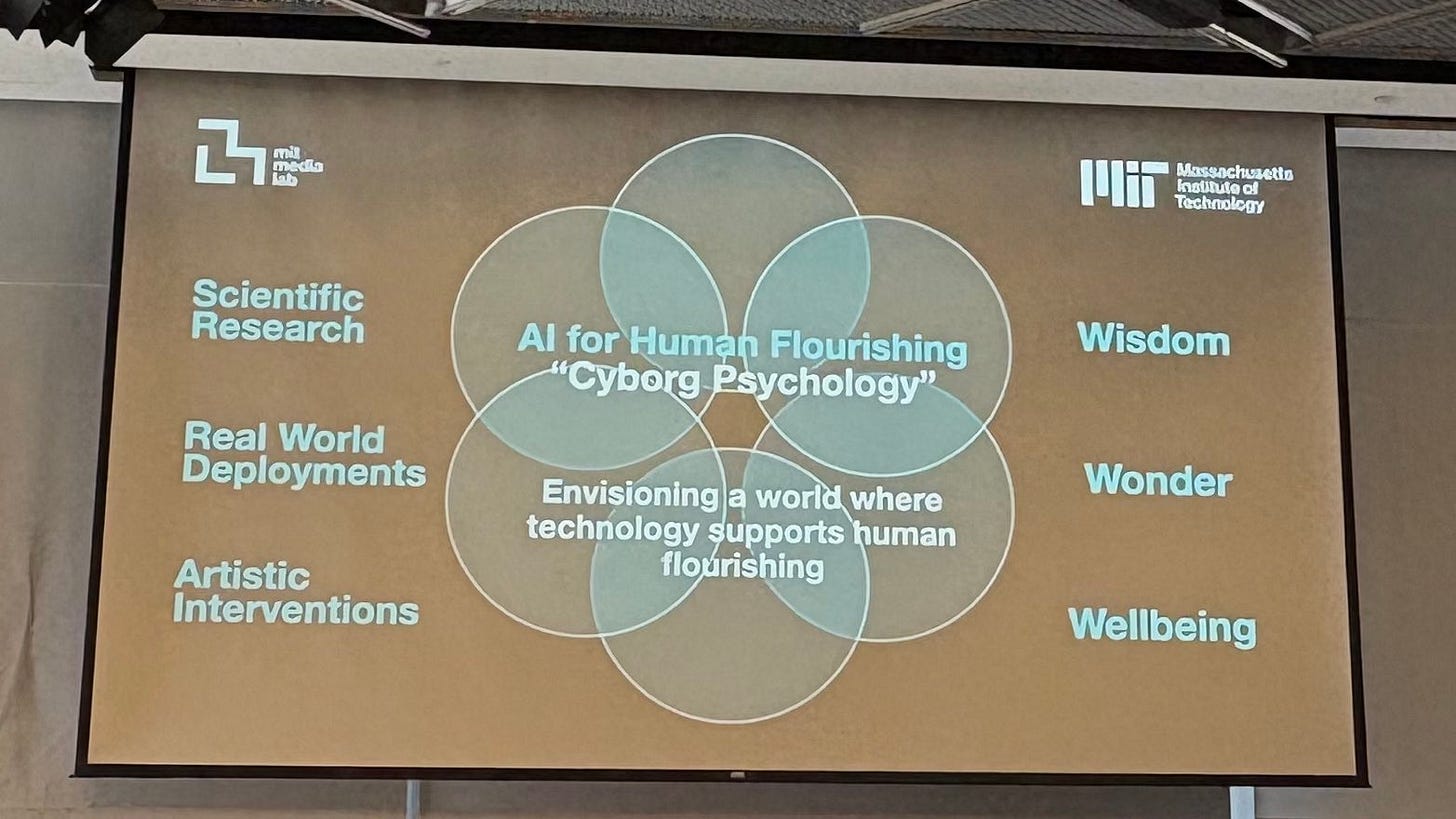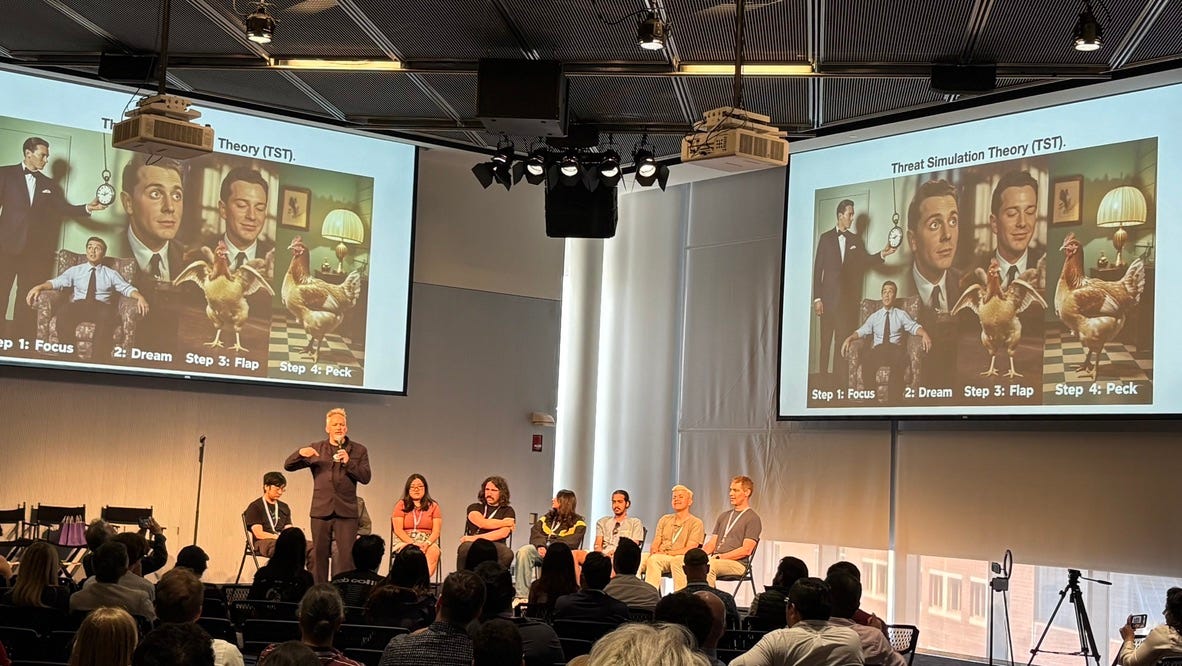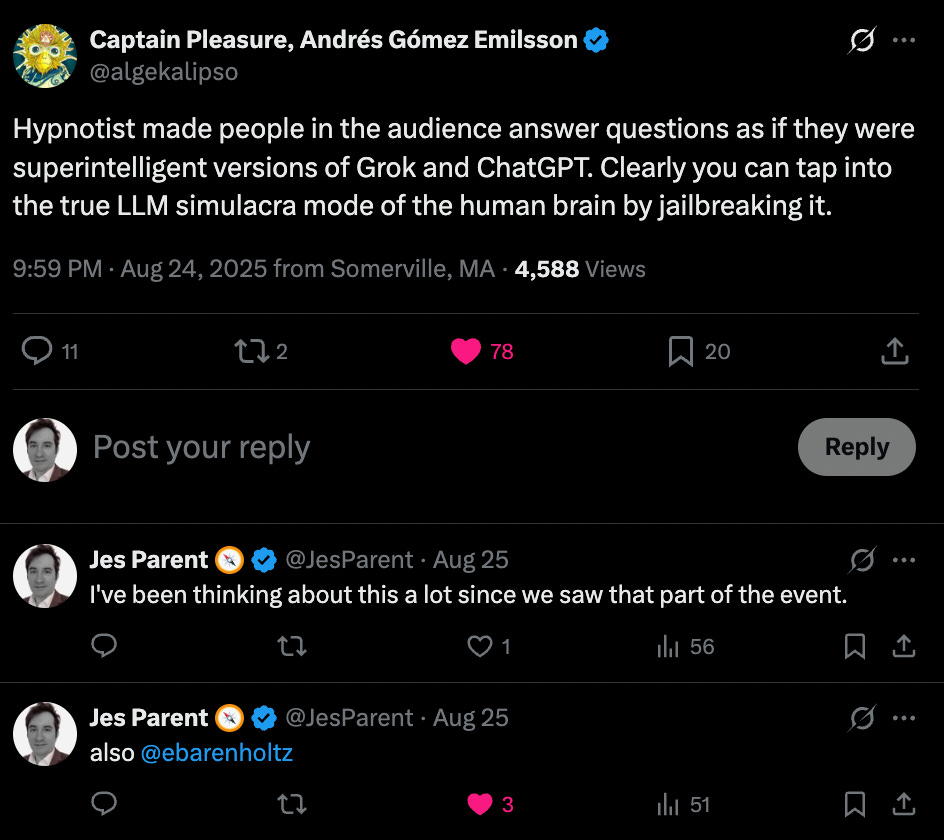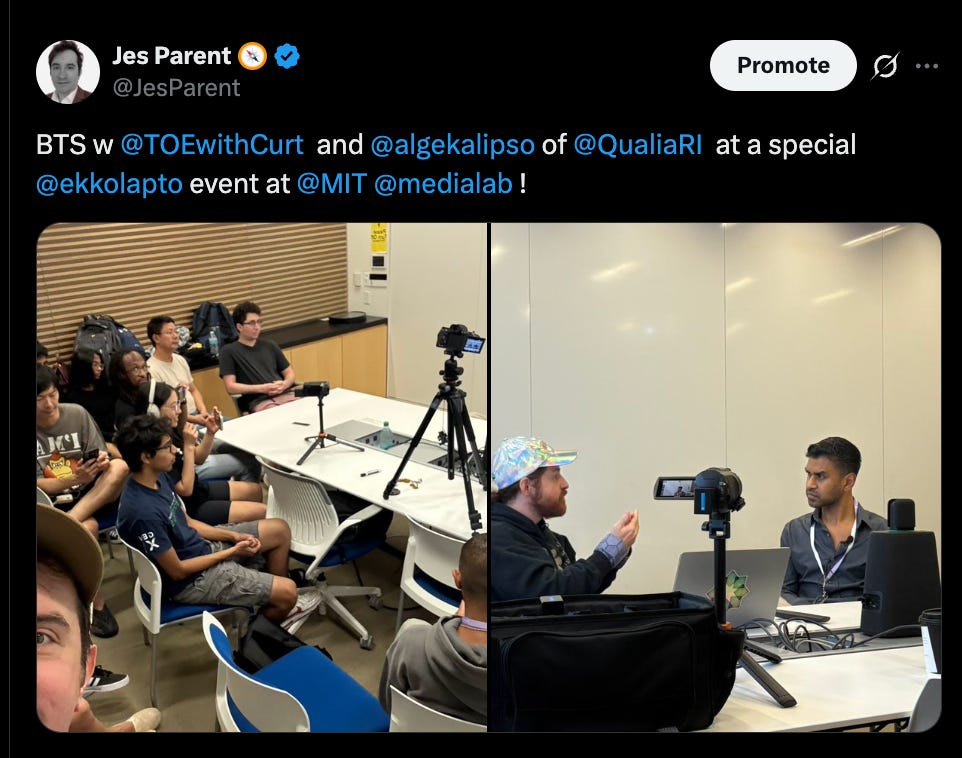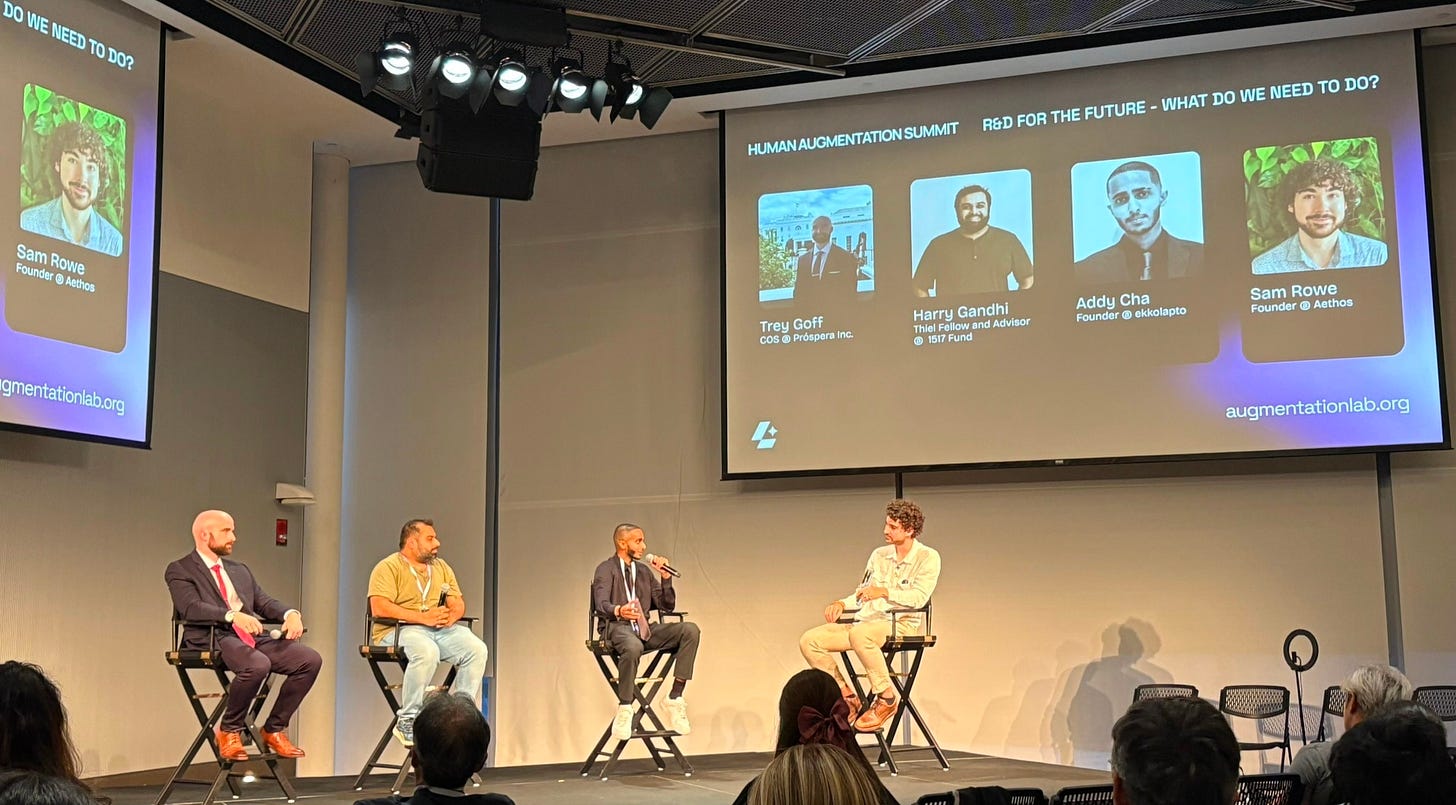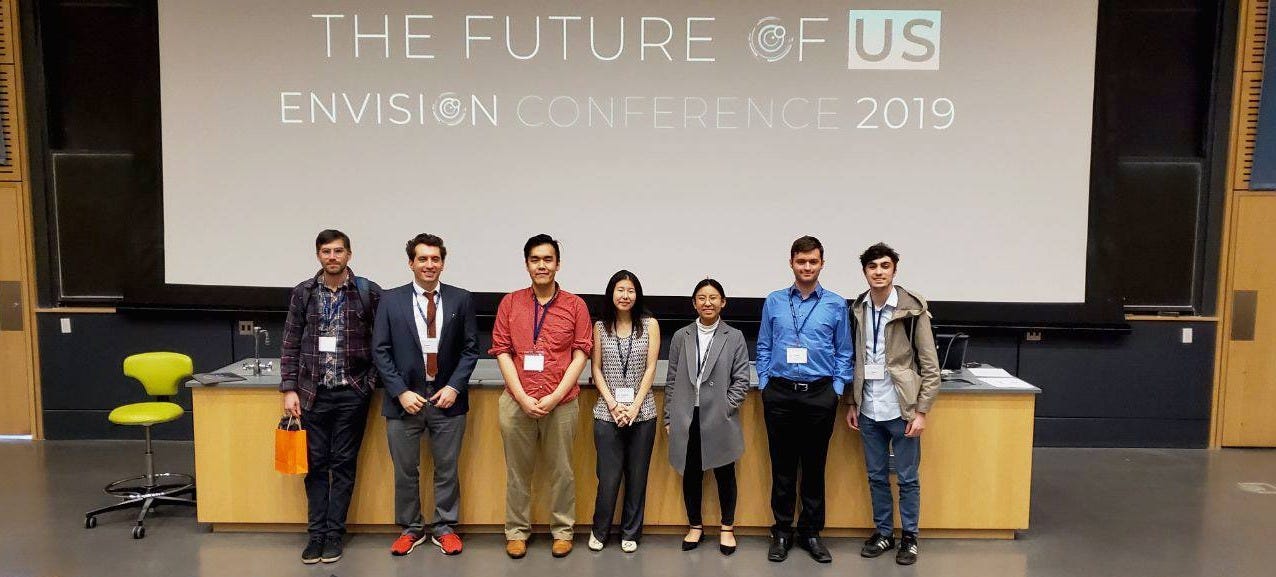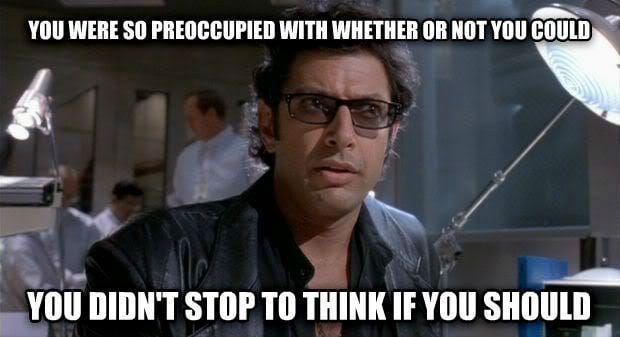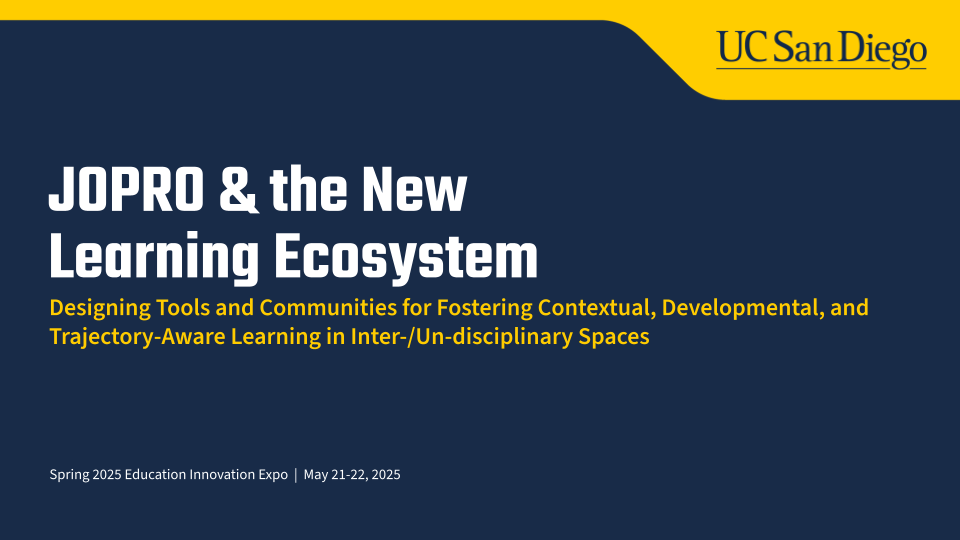A Beacon for Philosopher-Builders | AugLab Summit at MIT
Event takeaways, the 2025 zeitgeist, and JOPRO’s next twelve months.
We came for the demos and left with a question: how do we keep the human condition in the loop as capability accelerates?
Acceleration is easy; stewardship and centering the human condition is hard. AugLab’s Summit put it all on the table. I attended the August 23rd gathering as a Summit Exhibitor on behalf of JOPRO, as a friend and member of the ekkolápto salon community, and occasional Media Lab party crasher.
In a slightly ambitious approach, the following piece is: (1) part event reporting, (2) part synthesis of contemporary societal threads with the Summit’s deeper themes, and (3) part highlighting work from groups I am involved with that share the same spirit.
Skip To:
What: field notes from the Human Augmentation Summit at MIT
So What: the 2025 context that shapes how we build
Now What: JOPRO programs + a 2026 convening you can help shape
1) The AugLab Summit
Augmentation by the numbers:
250+ attendees, 20+ exhibitors, ~20 Residents, 8+ keynotes, 6 panelists, and a 1-day event that could have easily spilled into 2 or 3 robust days of inquiry and action.
Background
The immediate and material, physical, and personal venue for this transmission is described as follows:
“The Human Augmentation Summit is a gathering of creators - from innovative startups and industry leaders to daring researchers and artists - all shaping the future of the human condition.”
To step back for a moment, my personal relationship to AugLab comes through being a Boston local, and through Ekkolapto’s salon series of discussions; I attended a talk on intelligence & qualia with FAU’s Will Hahn and another with AugLab resident Parth (Rana G), discussing cultures, social networks, and systems.
Augmentation Lab represents its mission as:
“We are a transdisciplinary community of philosopher-builders developing technologies to enhance the human condition,”
defining philosopher-builders as “individuals eager to explore and innovate for the future, equipped with the wisdom to empower and protect”
AugLab hosts a 2-3 month Residency during the summer to build out related projects; the Summit serves as the finale of Residency program — which I did not fully understand until the event when it was contextualized during the rapid-fire demos.1
In their own words, the Summit
“is organized by the Augmentation Lab, ekkolápto, and Pulse, and features speakers and exhibitors from MIT Media Lab, Wolfram Summer School, The Residency, Infinita City, Prospera, SundAI Club, Æthos, PRISM Collective, Conflux Collective, Akiya Collective, and more.”
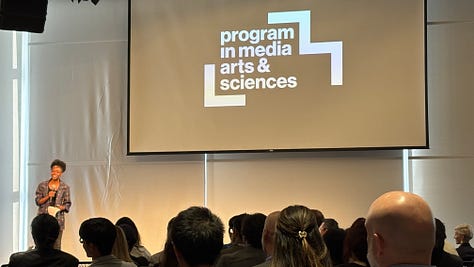
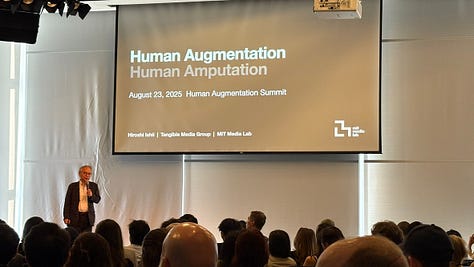
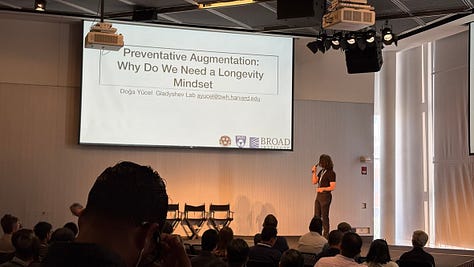
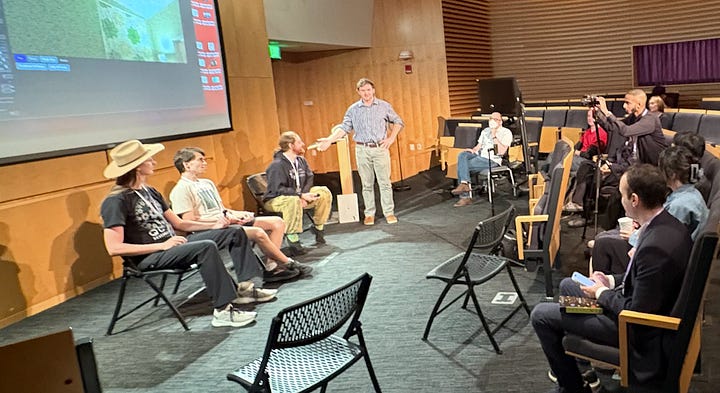
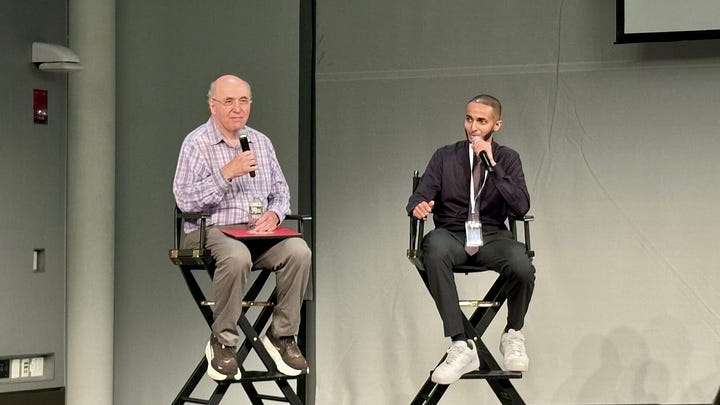
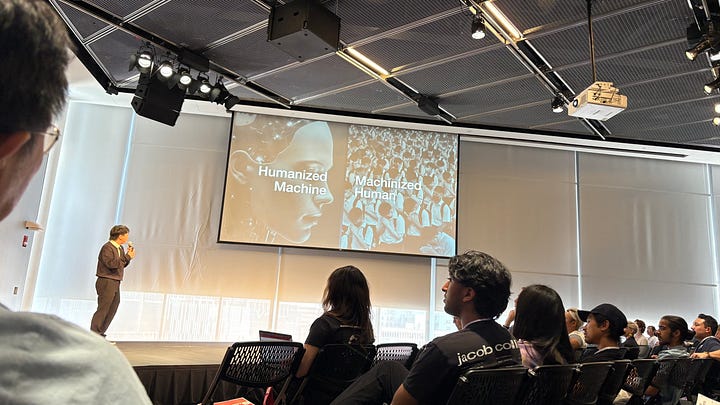
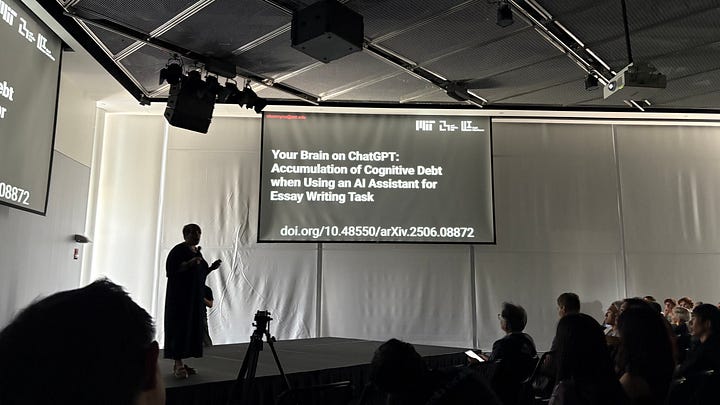
Keynotes
Each keynote and panel could be its own post; what follows are selective impressions rather than comprehensive notes. The Summit welcome was delivered by Dünya Baradari (Augmentation Lab), Addy Cha (Ekkolapto), and Pedro Henrich (Pulse).
Media Lab Welcome
Community Building & Student Engagement officer Alma Jam introduced us to the Media Studies program at the Media Lab. This was followed by renowned Professor Hiroshi Ishii (MIT Media Lab) with his well-informed perspective, sharing how technology empowers or suppresses with his talk on “Human Augmentation / Human Amputation” (update: full slides now online)2.
Longevity
An overview, a technology, and a take on advocacy rounded out the second keynote group, featuring: Aging field overview and a case for longevity by Doga Yucel (Harvard Medical School); From Vision to Viability: Partial Epigenetic Reprogramming via Michael Ringel (Life Biosciences); and Making Longevity Mainstream with Elen Capri.
Human-Machine Symbiosis
My personal favorite keynotes were from the Media Lab pairing: “Cyborg Psychology” by Prof. Pat Pataranutaporn and “Bodyfull/Bodyless” with Dr. Nataliya Kos’myna.
Nataliya informed us that she had a last-minute update for her presentation, which resulted in analyzing several axes and trajectories to illustrate amounts of embodiment and degrees of merging with AI — using contemporary film media as examples. Previously, I’ve had the good fortune of attending her Augmented Brains 2022 and NeuraFutures events, which fit well with this keynote. Nataliya’s popular work on “Your Brain on ChatGPT” was mentioned in passing, of note as something we’ve discussed in JOPRO’s Data x Direction summer cohort.
Pat’s slides easily inspire a much more thorough discussion, making it clear to see why the Media Lab has brought him onboard to champion a new research group. From commentary on flourishing as meaningful augmentation, to questioning whether new technology is simply replicating old pedagogy, we’ll return to his ideas below, and assuredly in the future as well.
Evening Program & Bonus Podcast
Live Hypnosis Session with Albert Nerenberg — unexpectedly intriguing, Albert wove enough technical concepts into the talk to fit the MIT crowd, and there was some interesting hypnotic suggestions to replicate things this group might know how to do, such as “speaking like Grok.” We saw enactments of the doubling effect, forgetting one’s name, and other feats that left attendees stirring with assessment about which cognitive mechanisms were teased out by this skilled demonstration.
Curt Jaimungal (Theory of Everything) + Andrés Gómez Emilsson (and others from Qualia Research Institute). The title of the podcast session with Curt was Psychedelic Cryptography, Phenomenology & Consciousness, while Andrés also hosted an earlier discussion on “The Screens of Consciousness & Computational Philosophy.”
For those interested in not just psychedelics or altered states, but deep dives in to phenomenology and insightful talks on experience (perhaps the C word), the rest of the weekend with Albert, Andrés, and Curt fostered a unique discussion space. Consider also Curt’s interview of Andrés from earlier this year.
Q&A with Stephen Wolfram moderated by Addy Cha. For the finale of the main AugLab Summit proper, this lent to a very wholesome and much appreciated cross-generational aspect of the night. It’s so important for early-career builders and researchers to hear directly from the previous generations, particularly those as invested in paradigmatic shifts and unabashed exploration as Stephen.
Panels: Context Unlocked
I’ve slightly abstracted the panels out of chronological order, as I believe their combined impact is worth emphasis.
When recapping the Summit during a recent episode of Saturday Morning Neurosim, Orthogonal Research & Education Lab’s standing weekend discussion, I stated unabashedly: “ the panels were fantastic and changed what the event was to me” — why?
Whereas keynotes delivered strong individual visions, the panels triangulated perspectives, modeling the kind of transdisciplinary engagement we need. It is worth openly valuing and celebrating the contextualizing, vantage-framing, and illuminating aspect of what these panels were able to present.
But first, a few gems and quotables from the panelists.
Future of Work & Meaning Making
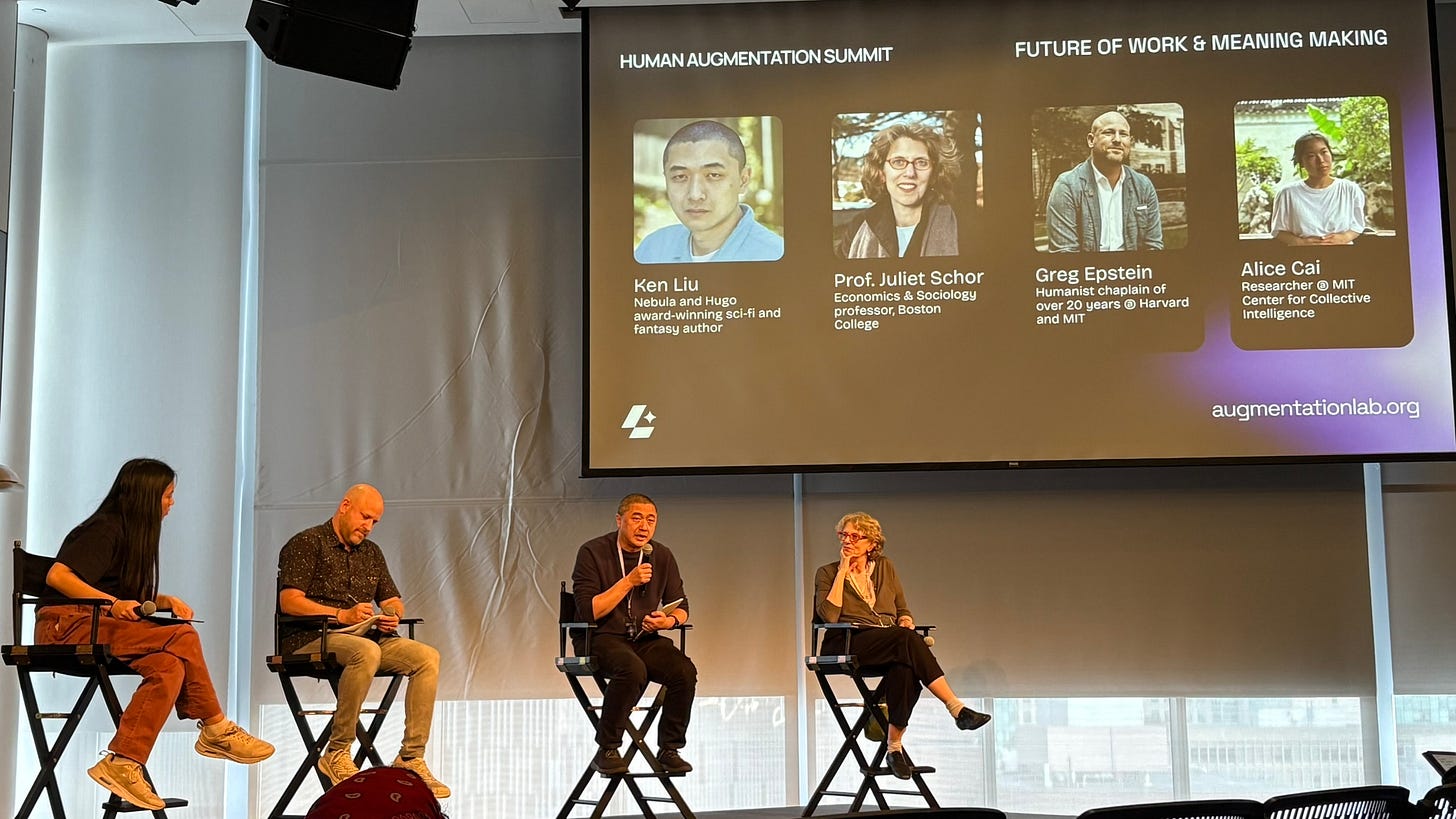
Greg Epstein, Humanist Chaplain (Harvard/MIT)
“If tech is a religion, it’s the most powerful one on Earth—so interrogate its heaven/hell prophecies and who they serve.”
What if what we really need is less augmentation of our bodies or our intelligence—and more augmentation of our capacity for compassion and sacrifice?”
Ken Liu, Author and Lawyer
“Fix humans? Then fix the human story—and learn how multiple stories can coexist.”
“AI displaces the work that’s most representable in data—not just the most ‘cognitive.’”
“We can’t rely on politics alone—builders need to keep AI in the commons”
Juliet Schor, Economist & Sociology Professor (Boston College)
“Jobs are a story we invented. They became identity—but they don’t have to be.” (This is essentially a of combination of both Liu and Schor)
“Four-day week, no pay cut, is already working—time wealth is a practical complement to AI.”
“Whether AI goes utopia or dystopia depends on context—who controls it and which values are encoded.”
R&D For The Future
The second panel on the future of R&D was extremely rich in its content and message. Panelists Trey Goff (Prospera), Harry Gandhi (1517 Fund), and Addy Cha (ekkolapto) substituting for Dünya Baradari (Augmentation Lab) were moderated by Sam Rowe (Aethos). My notes have less clear designations of who said what, but here is a rough collection of key ideas:
Are grant applications really the best use of our best minds’ time? The market’s correcting: FROs, earlier involvement of VCs, private foundations, and DAOs are filling the gap.
“Sustainability is the model, not a grant.” Tie revenue to people’s prosperity; align incentives so flourishing is the business plan.
Funding is only one piece. You also need community, legitimacy signals, “and what I [Harry] call beacons—public work that others can follow.”
Some communities shouldn’t scale fast; over-funding can crush the bar and kill the culture.
“Rigor for wild ideas,” treat ‘crazy’ ideas with scientific respect: reproducibility and honesty, not institutional pedigree.
What’s more, this panel had a fantastic diversity of tone and presence.
What made this R&D panel shine was a meaningful diversity of arenas, but uniformity in concern and intention. Trey brought a policy-honed, solutions-first cadence; Addy offered an explorers’ perspective; Sam and Harry held space for community and sustainability, from the perspective of seeing groups and teams build their goals out over time.
Different professional languages, same problem space. Hearing those styles in one room kept the conversation honest: less monoculture thinking, more witnessing what the diverse approaches and voices speak to.
2A) Zeitgeist & Ether
Selected Contemporary Cultural Threads
To zoom out for a moment and recontextualize to some broader zeitgeist in the world, a few notes that pertain to “The Human Condition”, a stated concern of AugLab.
There are a number of threads that dominate the zeitgeist of 2025, some more visible than others. Here are a few that shape some of my broader context for viewing the Summit, and some of the work we are doing in JOPRO and elsewhere.
The morning I began putting thoughts to "paper”, I serendipitously came across some clips from the slot machine that is social media. First, Ari Aster, coming in with: “We’re living in a world where people don’t agree on what is real.”
Loss of Shared Reality
We’re amplifying each others’ paranoia because there’s nothing in the ether to hold us together any more. — Aster
He speaks of a ‘fundamental sense of what is real’, and that’s gone, further declaring it’s been happening for over 20 years, and that COVID is a point which it was clear that the ties to the “old system” was cut completely; not the start, not the inflection point, but the completion of the severing.
A stage of hyper-individualism, no collective sense of very much of anything. Digiphrenia, assuredly, does not help.
Present Shock, Future Shock
For anyone who has been within philosophical earshot, I spent months in the first half of this year referencing Present Shock, which is Douglas Rushkoff’s 2013 (we were barely into deep learning, no less the ChatGPT era then!) spiritual successor to Alvin Toffler’s seminal “Future Shock” of 1970.
12 years after the publication of Present Shock, it’s hard to overstate its continued relevance. Maybe, even, a post- or hyper-present shock state fits with this clip:
Alienation & Forfeit Futures
Alienation occurs when the world you used to dream of no longer exists. — McNamara
Meditations For The Anxious Mind’s Frankie McNamara blends cutting humor with insight to deliver a conclusion of: “So women are not the issue, and neither are men. We’re all just mourning a future that disappeared, but that loss still structures our desires — like a burnt out car with brand new tires.”
References to Derrida & Fischer’s takes on Hauntology go unsaid. American Politics at large, seems haplessly addlepated about forming a coherent vision of what the next few months will offer, no less structuring a broader, more encompassing plan to construct the future.
Particularly a future that doesn’t long for or recreate motifs from the 20th century. This seeds and reinforces many on the “Tech Right” (or simply Big Tech?) to embrace declaring folly or uselessness of democracy. Enter Karen Hao’s work, among others, on the actual battleground and power struggles at play in the techno-political arena.
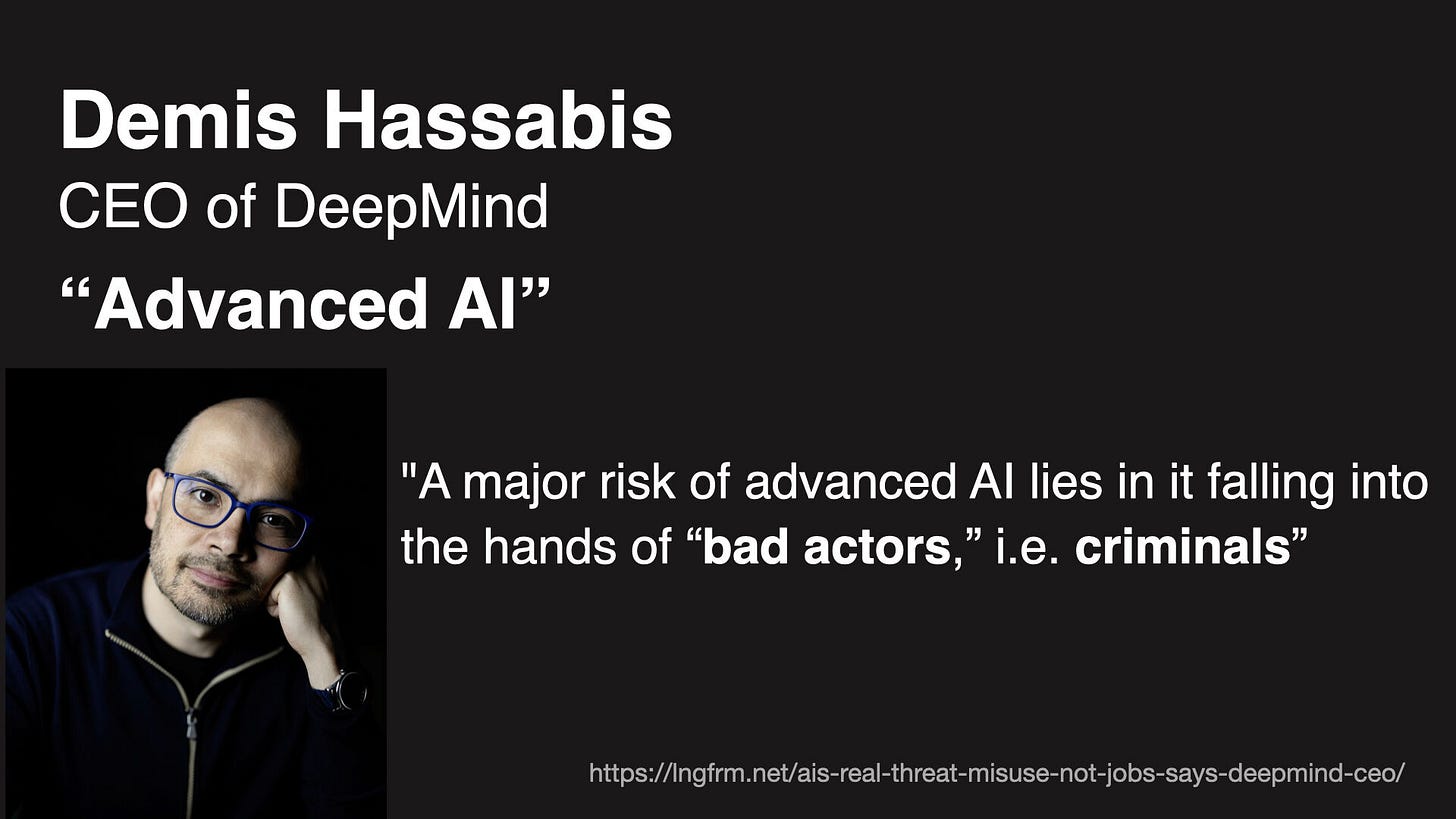
Much more could be said here (such as roles of gender, identity, and ultimately how the continued development of technology will impact norms and frameworks ((Yes, this is a Michael Levin reference))), but I will continue this high level framing by moving on to someone we all know, whether we’d prefer to or not. Someone with a reputation, you might say.
Blank Spaces for Narrative Storytellers
Controversies and hyper-celebrity aside, the actual activities and narratively-selected-for artistic creations of Taylor Swift coincide with a relatively global demand for continuity, for there to be some kind of meaning and meaningful set of references to endure in the world.
As one Swiftie said when discussing this very theme: “The world sucks right now, but at least we have an album to look forward to.” And as much as anticipation may be the purest form of happiness, the key here is the ability to take solace in a continued presence of a narratively-aware medium for and creator of contemporary culture3.
Easter eggs years in advance, emphasis on the importance of experience, and an intentionality towards a weaving both a story and community or fandom that is based around letting people have friends in this shared journey— Taylor’s approach seems to tend to the narrative void that dominates much of the 21st century experience.
I’m not yet prepared to write a post about “What can (Futurists, Philosopher-Builders, etc.) learn from Taylor?”, but I sense it’s only a matter of time. If Elen Capri is taking longevity mainstream, who can builders partner with around narrativity, identity and the human condition? Panelist Ken Liu may illuminate one path to pursue.
Honorable Mentions
I don’t think I could write this post without mentioning Ruha Benjamin. I originally met Ruha at Princeton Envision (see below), and I’ve been following her work on race & technology and championing imagination and the future ever since.
Educator and activist Sage Lenier has had some of the best soundbites for approaches to what I hope to see more of in terms of solutions-focused — but also simply affirming that we have not fully “succumbed to the inferno” of Italo Calvino, or general Lost Futures that Fisher & Co ha. If you look into it, you can see what such despair fosters.
The world that we've been living in for the past 150 years was never necessarily designed to last. […] This is truly the moment for new blueprints, new frameworks to emerge.
— Lenier
Again, this section was all about the moment we’re in, from a particularly different context than what was spoken through at the AugLab Summit. But juxtaposition can hopefully lend to a broader sense of what we’re dealing with, at large.
There are many looking to fill this narrative, identity, and meaning vacuum. The aim here was to loosely reference pop culture, and allude to that which is also vying for your vote, attention, or compelling your acquiescence. Enhancing the human condition requires fluency and familiarity with what is empowering or consuming it, across various domains.
I believe folks interested in the future should be building with these challenges in mind, in addition to the technical, ecological, economic, and political arenas outright.
Next, we return to interweaving strands from the Summit, before looking at some developments and plans for the next 12 months.
2B) Post-Summit Synthesis
Circling back to the Summit, we left the event with more than notes. We left with a working question: how do we keep meaning (and the human condition) in the loop while capability accelerates?
What follows is my synthesis of that question in 2025: the challenges, the skills we’ll need, and why “philosopher-builder” isn’t a slogan but a survival kit.
“Nobody taught us, so we taught ourselves”
Cultivating Philosopher Builders
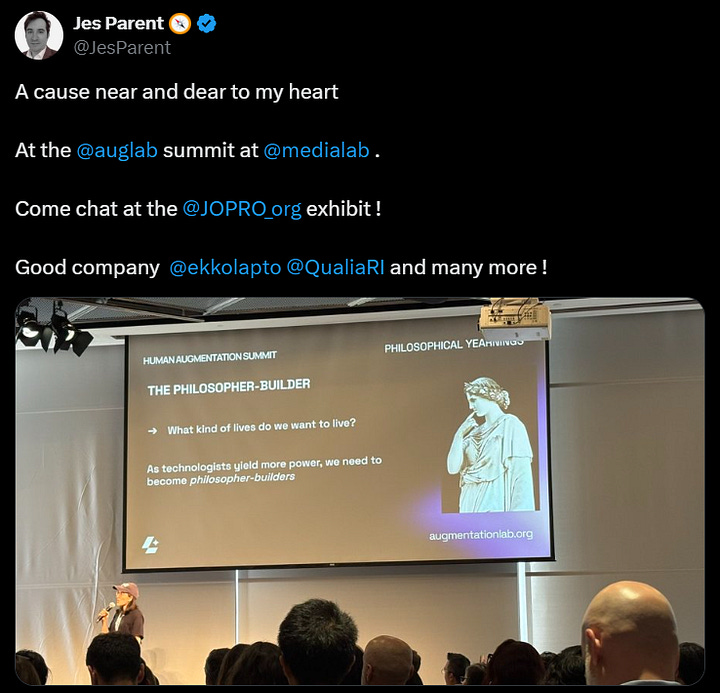
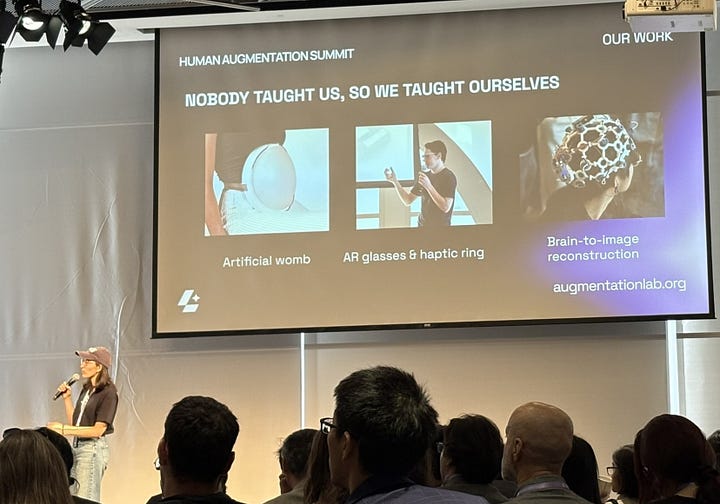
“A cause near and dear to my heart” refers to both the notion of a Philosopher-Builder and the autodidactic-oriented, community-fostering ethos presented by AugLab’s own Dünya Baradari during her introductory presentation.
Alongside the recent branding by Cosmos Institute as the “Academy for Philosopher-Builders”, I find myself in the position of championing similar efforts across the broad landscape of next-gen futurist-leaning endeavors. With a tease at forthcoming work on that mapping landscape, I’m pleased to see the concept centered for innovators & builders in the Boston-area community and beyond.
Having been in this arena for the better part of a decade through work with the Orthogonal Research and Education Lab, JOPRO itself, and many other groups & programs, and I’m never more convinced in the substance of these approaches.
AugLab is rightfully proud of being an independent organization, and what’s more, by having partners at legitimacy- and resource-lending institutes such as MIT itself, it’s a great way to open doors to many others.
It reminds me of some of the structuring and efforts of the Old School, original run of Princeton Envision (2018, 2019). Envision has revived itself and will be hosting its next event early in 2026, focus on AI & Tech Ethics — so we will hope to have some of JOPRO community and Data x Direction members participate.
Assuredly, we are in an era where much of the key curriculums, studies, and ways of synthesizing insights and integrating efforts are things we will have to collectively “teach ourselves.”
Compatibility Update: meaning, teaching, and what else?
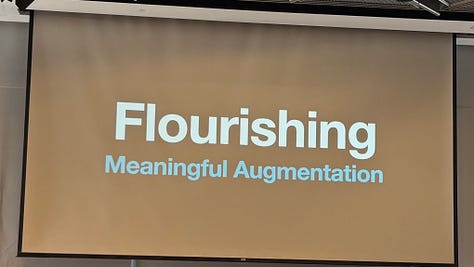
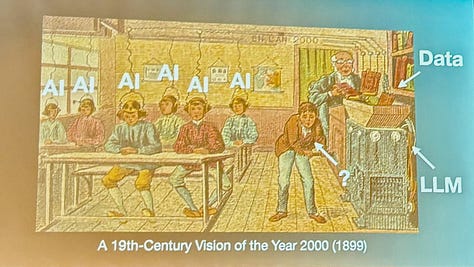
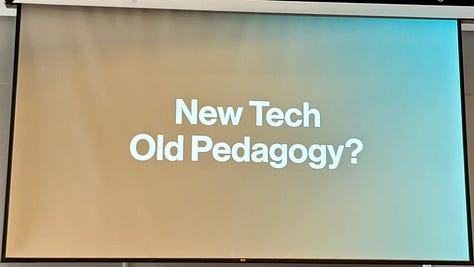
Buried inside Pat’s keynote talk were some subtly spotlight-worthy slides. Reaching some manner of brevity in this section, I will center “New Tech — Old Pedagogy?”
To extend it further, new tech, paired with….
Old politics: complacent or unrigorous evaluations of systemic buy-in or power
Old pedagogy: teaching, contextualizing, and training others
Old navigation: lack of modern sense of direction, “destination discernment"
And what else? What else is new technology being paired with that we are 1) either attempting to account for, 2) neglecting to consider, or 3) suffering the consequences from regardless of it being centered or not?
Furthermore, I believe we should seek to advance the infamous critique of “You were so preoccupied with whether or not you could,” from Jurassic Park’s Ian Malcom.
I offer that there is more at hand than “do or do not”, “accelerate or decelerate” which is worthy of our deliberation. Even, the ease and tenability of more or less technology conveniently masks the harder-to-address nature of meaningfully coordinating with the rest of society. Where are we trying to go? What destination states ahead are tethered to the choices we are making now?
Move Fast and Break Things, even, to me, is not the the core of “The Problem”; I will instead return to the spirit of Sage Lenier’s words on the moment we are in:
“ This is a fracture in the systems that have gotten us here, […] whoever decides what comes next is going to be the group of people that has the discipline and the clarity of mind to keep building no matter what happens.” — (Lenier, emphasis added)
It’s not that the solo builder in a garage is to be looked down upon, or that one should not be cavalier about developing their technology or product. But rather, let us consider these two points in particular:
It is reasonable, responsible, and effective to coordinate development with adoption: co-design tools, practices, and institutions so outcomes match our values, or at least make certain destinations more likely than others.
Those who are able to do so are actively seeking to tilt the playing field in their advantage and away from “your” particular interests, no less away from other power players in the game they are playing.
For good or ill, these are the conditions we are all Building within and extending out from, so aspiring Philosopher-Builders, take note.
We are not just making technology, nor merely connecting technology with a user-base. We are playing a part in (the nature of) how connected the future is, and what will be centered as existing systems deteriorate and power restructures itself around the new mediums, substrates, and affordances we are contributing to.
Panels’ Pedagogical Notes: Cross-Domain Communication
It is hard to convey just why the panels contained the value that they did but I will take another pass at it here.
Regarding skill-building and the craft of communicating context
In particular, to cohort members or interns reading this I implore you to review the footage4 to study and observe each panel at this event.
Consider what their home domains are, and how they sought to represent the challenges of those problem spaces within the broader community and commons at hand. Investigate further how that person would speak within their domain or main operational space, and consider the work of communicating from one vantage point of niche, refined expertise and transmitting, potentially translating, back to a general lay audience that has some interests at hand.
Creating these spaces and learning how to transmit understanding from distant vantage points comprise of the skillsets and strategy we will need functionally, concretely, and in a coordinated, meaningful manner, build out viable paths to the future. (See “Steelman the Problem Space” below.)
This is yet another feature that is often seen as “nice to have” that in reality will be essential and irreplaceable. As I allude to at the end of this message, developing and centering these skills, tactics, and approaches are what we are working on in several new initiatives.
In the context of communities endeavoring to make forward-looking, next-gen Futurist-type events
I will say the following not knowing the full story of how the panels came about, who was first choice, or how much thought went into them — and I would love to chat more with anyone who has insight about such5.
But why I continue to highlight them here is that, both through careful selection and articulate moderation, and some kind of a coordinated or serendipitous alignment of intention, there was a palpable sense of synthesis, and intentional context creation.
Yes, not every transhumanist of futurist conference will have award winning author-lawyers, venerated sociologists-economists, and chaplains based deeply in the academic (and now political) battleground that is a major innovation hub such as Cambridge/Boston. But that it was unambiguously centered here, I believe, made it easier for many other adjacent things easier to discuss, even if most of the topics shifted to technical matters.
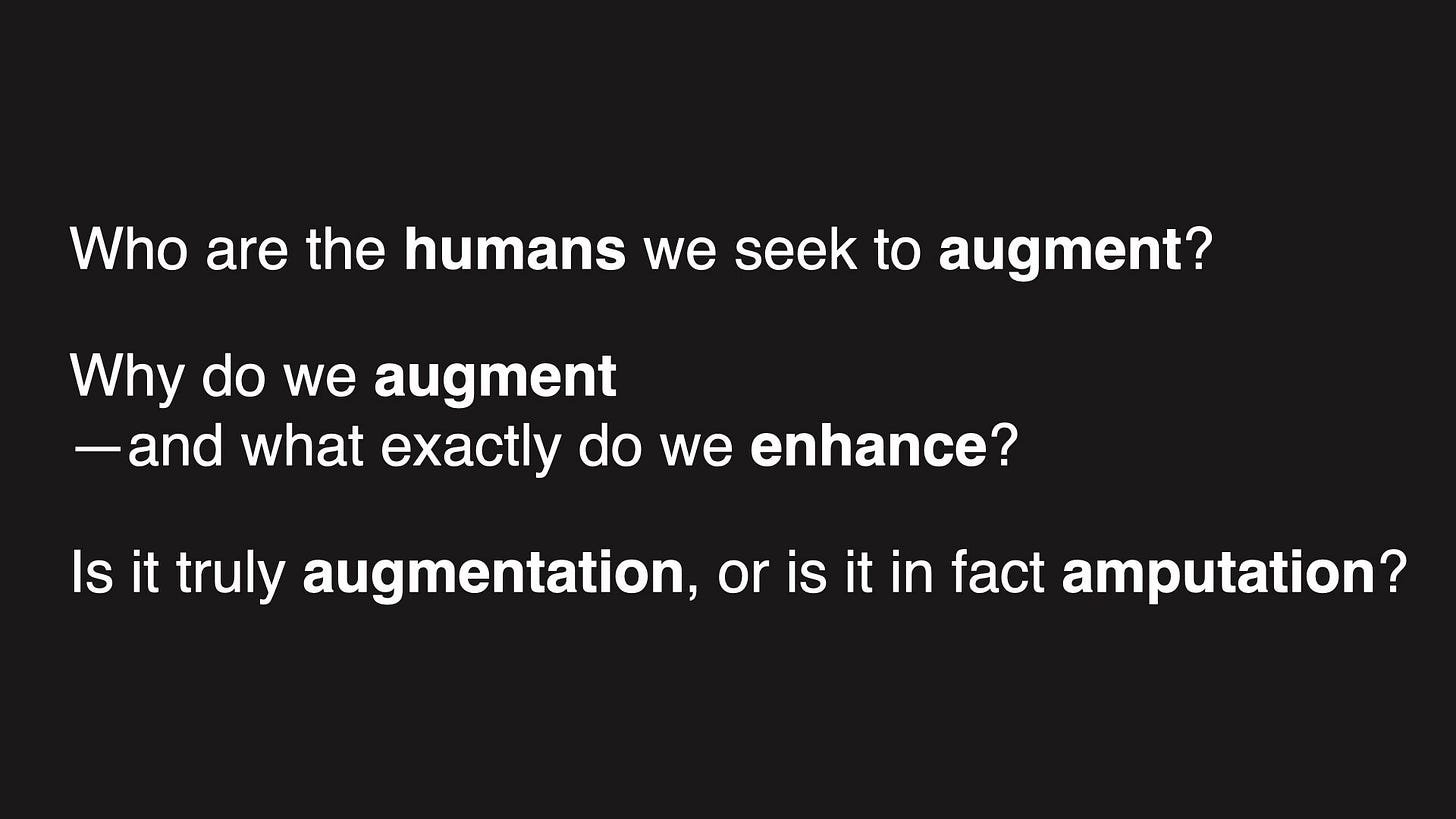
To be fair, I had few conversations during the event that directly spoke to the core of what I’m drawing our attention in this message. But with Ken Liu signing books in the main hall, Keynotes like Pat Pataranutaporn and Nataliya Kos'myna mixing in the milieu, and elders Stephen Wolfram and Hiroshi Ishii anchoring the event, it did indeed elevate and lend legitimacy.
As I noted elsewhere, all too frequently these tucked away in an optional panel on “Responsible Innovation,” or a “Society & Technology” BoF placed after the main draw has faded; it was refreshingly different at the Summit.
Cheers to the Summit Organizers
A standout event, all of the organizers deserve a shout out for pulling together a valuable experience — perhaps even more impactful than many of the attendees would understand ahead of time.
It was indeed not just another transhumanist technical potpourri event.
I believe attendees will come to look back and realize that having an event like this will inspire and shape some of their own choices, and how they seek to structure events in the future.
AugLab’s future in Cambridge may be somewhat uncertain for next year. Yet, prior to the event, I was already set on planning a spiritually-similar conference or seminar series in 2026 — the Summit’s success only further steeled my desire to do so.
3) “Now What?” — Projects & Programs
I work at the intersection of research, strategy, and community-building, and it shapes informs my take on 2025 and the work we’re moving forward. Below are some featured programs and projects underway.
Recent and Forthcoming Talks
JOPRO & the New Learning Ecosystem: Design tools & communities for contextual, developmental, trajectory-aware learning—so interdisciplinary learners actually land impact.
So what do you mean by Inter/Trans/Un- disciplinary Research? Real talk and strategy for those working in knowledge generation or navigating knowledge implementation in an unprecedented civilizational moment.
Technical Presentations for Mixed Audiences. A Google Summer of Code / Orthogonal Summer Cohort request, this topic ties into the pedagogical panel points mentioned above.
Steelman the Problem Space. A talk and workshop around traditional debates and creating alternative approaches to insight or knowledge cultivation.
JOPRO Featured Projects
Every term, JOPRO selects featured projects that we emphasize for development. Current term projects include:
Data x Direction. Practical governance & documentation playbooks—e.g., a living taxonomy of data documentation, ethics, and AI transparency frameworks. Our Summer Cohort focused on topics such as:
AI & Inequality in Education (Karina Zambina, UC San Diego)
Big Tech Ethical Policy Analysis (Arnav Satish, UC Davis)
Data Ethics Frameworks (Tlamelo Makati, Technological University Dublin)
From Here to There: Strategy and Mentorship for Innovators. We are developing materials, workshops, and discussion series about the actual skills people need to do the work of being a Philosopher-Builder and target meaningful futures.
Society Ethics Technology: Founded in 2021, this is one of the original working groups that centered inter- and trans-disciplinary collaboration by making opportunities for different domains to interface around tech and ethics.
New Opportunities & Call for Involvement
Over the next several months, several programs and initiatives will be coming online. Please express interest if any of them appeal to you, or if you’d like updates and more involvement opportunities.
Center for Futures Studies
In development with partners such as Orthogonal Research and Education Lab, we have recently laid foundation for the forthcoming establishment of the JOPRO Futures Studies Center (working title).
The Center will serve as a living lab for rigorous, use-inspired work in futures, strategy, and systemic change, as well as advancing new ways of doing science & research and the training around such. Expect public papers, datasets, and deployable tools, plus a pilot micro-residency/cohort soon.
Essay Contest: Future Vision & Voices
Calling builders, researchers, and community voices: the Futures Studies Center Essay Contest spotlights who’s missing from the futures conversation—and the most critical as well as overlooked strategies that create real on-ramps to better worlds. We announce themes and guidelines next week.
2026 Conference Planning
If the core themes within this post resonates — technology + human condition & impact + vision setting & strategy — join us. We’re assembling a coalition to host an event in the second half of 2026 that captures this spirit.
What we’ll curate: keynotes, interdisciplinary panels, demo + critique labs, a workshop or skill & strategy studio, and an exhibit of beacons (maps, docs, demos).
Who belongs in the room: researchers, founders & venture supporters, educators, policy folks, artists/designers, and student cohorts.
How to plug in: co-curate a track, propose a session or demo, mentor/jury Future Vision & Voices, sponsor seats or a micro-residency, or offer a host site.
Location is not yet set, but we aim for it to be hybrid or with a definite virtual component. Discussion is underway for the Boston/Cambridge area.
Get involved!
Interested in any of these opportunities — or would you like to collaborate on related projects or initiatives? We’ll send RFPs, dates, and materials as they open. We look forward to hearing from you.
👉 One step for everything: [Interest Form]
Thank you for your interest in building futures!
Jes Parent
Boston, August 2025
About the Author
Jesse Parent holds a M.S. in Data Science from the Halıcıoğlu Data Science Institute, University of California, San Diego. He brings nearly 15 years of experience in startups, technology R&D, and strategic consulting. Jesse is the Founder of JOPRO and Director of the “From Here to There: Strategy and Mentorship for Innovators” initiative, developing curriculum and training for next-generation leadership. He has presented work at institutions including the Oxford Internet Institute at Oxford University, Boston University, and the University of Washington School of Law, and recently served as a judge at MIT AI Venture Studio Demo Day. [Links & Social Media]
If a full coverage of the actual residents and their projects becomes available, I will return to link it here — as an exhibitor myself, I didn’t have time to adequately view or cover all of the Residency projects.
Edit: Hiroshi Ishii made his Keynote slides available on social media.
Disclaimer: I started writing this three days before the public announcement of her engagement on the 26 of August. Also, to the Swifties who will eventually read this: I am mostly a local, but I have asked a certified Taylor fan to review this before publication.
At the time of this posting, there is no publicly available footage of the panels or event at large. This post will be updated accordingly. Yes, it was worded that way because that song.
Edit: I eventually did find out, and updated accordingly. Would still love to talk with organizers more and also discuss, for forthcoming events, how to reproduce similar mixes of speakers.


